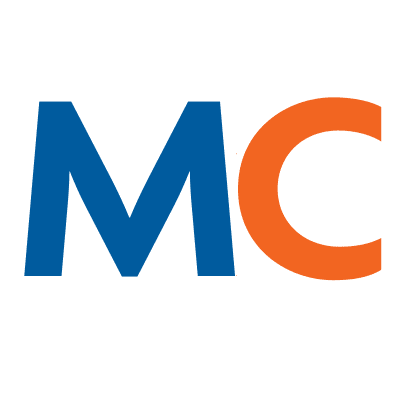- Solutions
- Solutions
- Home Health
- Hospice
- Life Plan Community
- Palliative Care
- Private Duty
- Senior Living
- Skilled Nursing
- Skilled Nursing
- Skilled Nursing Software
- Advanced Insights
- Customer relationship management
- Data and analytics
- Financial & operations management
- Marketing
- Nutrition management
- Referral management
- Regulatory compliance
- Retail management
- Resident engagement
- Revenue cycle management
- Skilled nursing interoperability
- Partners
- Blogs
- Resources
- About
- User Conference

Yes, there’s pain on both sides with orders management
When patient outcomes and your financial margins are at stake, understanding the administrative environment of collaborator physician practices is crucial for effective collaboration and improved patient care. Forcura worked with Fierce Healthcare to produce a recent research report for just this reason.
“Post-Acute Care Coordination: 12 Key Findings and Recommended Actions” illuminates the challenges and opportunities within the physician practice space, offering valuable insights for both physician practices and home-based care providers.
In this blog, we dive into these findings, and how stakeholders can better navigate the complexities of post-acute care coordination and enhance their operational efficiency.
Identifying challenges in post-acute care coordination
The Fierce-Forcura report highlights that physician practices often grapple with complex paperwork and regulatory requirements, leading to significant administrative burdens. This mirrors the challenges faced by home-based care providers who have yet to adopt streamlined technologies like the MatrixCare-Forcura integration.
The report reveals that one in three physician practices spends over 10 hours weekly managing documentation related to post-acute care. This time-consuming process not only delays patient care, but also contributes to staff burnout.
Leveraging technology for efficient care management
Adopting innovative technology solutions is crucial for alleviating the administrative burden in post-acute care coordination. Forcura is one such platform that, when integrated with MatrixCare, has proven transformative for physician practices by digitizing and centralizing data — resulting in more streamlined workflows, reduced reliance on outdated communication methods like fax and phone, and enhanced efficiency of care management.
This centralized system allows for quick review and approval of care plans, enabling physicians to focus more on patient care rather than paperwork. For home-based care businesses, the MatrixCare-Forcura integration results in improved patient management and better alignment with physician collaboraters.
Strategies for enhancing communication with post-acute networks
Effective communication between physician practices and post-acute networks is vital for seamless patient transitions and care continuity. The report indicates that while most practices utilize the phone for communication, many also rely on multiple portals, emails, and faxes, leading to fragmented workflows.
To overcome these challenges, it is essential for home-based care businesses to adopt unified communication systems that facilitate real-time information sharing and collaboration. MatrixCare and Forcura offer integrated communication solutions that connect all stakeholders, helping reduce the time spent on manual processes and ensuring that care teams are aligned and informed.
Optimizing billing and reimbursement processes
Billing and reimbursement processes present another layer of complexity in post-acute care coordination. The report highlights that nearly half of the physician practices are uncertain about their ability to bill for care plan oversight of post-acute care, with some not charging for these services despite having the capability. Streamlining billing processes can significantly impact financial stability and margins.
For home-based care businesses partnering with physician practices, leveraging technology to automate billing codes and streamline documentation can ensure that services are appropriately billed, leading to increased revenue capture. Educating staff on billing processes and utilizing tools that support electronic data and e-signatures can further enhance efficiency and accuracy in billing.
Improving outcomes with coordinated care
The insights from the report underscore the shared challenges faced by physician practices and home-based care providers in post-acute care coordination. By embracing integrated solutions like MatrixCare and Forcura, both sectors can enhance care coordination, reduce administrative burdens, and improve patient outcomes.
Streamlining these processes not only benefits staff and physicians by minimizing burnout, but also helps ensure that patients receive timely and effective care. As the healthcare landscape continues to evolve, the integration of innovative technologies will be pivotal in maintaining a competitive advantage and delivering value-based care.
Discover how MatrixCare’s integrated tools can enhance your operational efficiency.
MatrixCare
MatrixCare provides an extensive range of software solutions and services purpose-built for out-of-hospital care settings. As the multiyear winner of the Best in KLAS award for Long-Term Care Software and Home Health and Hospice EMR, MatrixCare is trusted by thousands of facility-based and home-based care organizations to improve provider efficiencies and promote a better quality of life for the people they serve. As an industry leader in interoperability, MatrixCare helps providers connect and collaborate across the care continuum to optimize outcomes and successfully manage risk in out-of-hospital care delivery.
MatrixCare is a wholly-owned subsidiary of ResMed (NYSE: RMD, ASX: RMD). To learn more, visit matrixcare.com and follow @MatrixCare on X
Related Posts



See MatrixCare in action
Start by having a call with one of our experts to see our platform in action.
MatrixCare offers industry-leading software solutions. Thousands of facility-based and home-based care organizations trust us to help them improve efficiency and provide exceptional care.
© 2025 MatrixCare is a registered trademark of MatrixCare. All rights reserved.





